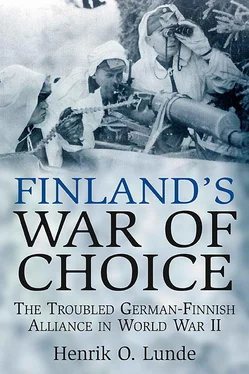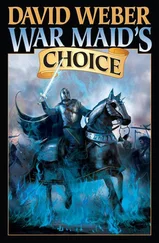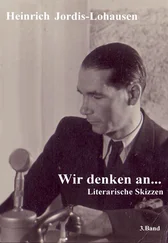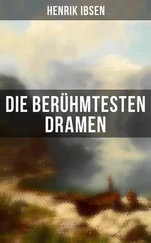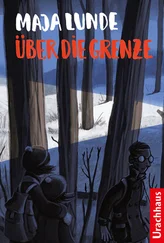Hitler had never faced a foreign visitor like Molotov, who brushed aside Hitler’s broad generalities and demanded detailed answers to very specific questions. 27First and foremost on his agenda was Finland and what Germany was up to in that country. The direct, detailed, and uncompromising approach by his visitor apparently caught Hitler offguard and the meeting was adjourned to the next day when full answers to Molotov’s questions were promised.
The Soviet negotiator was equally persistent when the meeting reconvened. Again, Molotov’s focus was on Finland and he and Hitler, in the words of William Shirer, “soon became involved in a bitter and caustic dispute.” 28Molotov came right to the point on the issue of Finland, which he had raised on the previous day. He noted that Finland was the only area where the Soviet-German pact had not been fulfilled and he asked if the agreement between the two countries with respect to Finland was still valid. Molotov insisted that the presence of German troops in Finland was unacceptable as were Finnish political agitations against the Soviet Union. He was very blunt in classifying visits by prominent Finns to Germany as part of the agitation that the Soviets wanted to end.
Hitler disavowed any interests in Finland except for the uninterrupted delivery of nickel and lumber. He told Molotov that the transit of troops would end in a very short time. He stressed the importance of avoiding a war in the Baltic that could strain German-Soviet relations since it could lead to British and Swedish intervention. He labeled the whole Finnish issue as theoretical since Germany had agreed in 1939 that the country belonged in the Soviet sphere of influence.
Hitler’s statement must have sounded disingenuous to his visitor since the subject of Finland was anything but theoretical to the Soviets. Furthermore, Sweden, which was basically surrounded by German forces, showed no signs of altering its policy of neutrality, and the Germans were claiming that the war in the west had been won except for British refusal to recognize that fact. Molotov stated that he was perplexed about who would start a war in the Baltic since there was no danger of a conflict if Germany adhered to the position it had taken the previous year. Molotov wanted German acquiescence in a Soviet settlement—without war—of the Finnish issue in accordance with the Soviet-German treaty. When asked by Hitler what this meant Molotov stated bluntly that they wanted a settlement along the same lines as the one with Bessarabia—occupation—and he asked Hitler for his opinion, apparently in an effort to soften this exceedingly blunt statement. Hitler avoided a direct answer and only repeated his earlier statement that there must be no war in the Baltic.
The talks between Hitler and Molotov became very heated and Ribbentrop attempted to alter the subject by trying to entice the Soviets with a share in the breakup of the British Empire. Molotov did not take the bait and switched the conversation back to Europe. The Soviets were more interested in northern and southern Europe than in some illusive promise of possible outlets to the sea in India. Hitler apparently grew tired and weary of negotiating with the Soviet Foreign Minister and the session broke up early.
That night the Soviets hosted a party for the Germans at their embassy but Hitler did not attend. The party was interrupted by a British bombing raid and everyone hurried to the nearest air raid shelters. Churchill claims that the raid was timed for the occasion: “We had heard of the conference beforehand and though not invited to join in the discussions did not wish to be entirely left out of the proceedings.” 29
Ribbentrop and Molotov shared the same air raid shelter and Ribbentrop presented Molotov with a draft treaty, which would make the Soviet Union a member of the Tripartite Pact between Germany, Italy, and Japan. He proposed that the extension of the pact, minus the secret protocols, be made public. The secret protocol spelled out spheres of influence and the Soviet Union’s was referenced vaguely as territories south of that country towards the Indian Ocean. This did not satisfy Molotov who pressed for an expansion in the southern part of East Europe towards the Mediterranean and outlets from the Black and Baltic seas by firm agreements that would guarantee his country’s security. He raised a whole series of questions and issues that Ribbentrop was not prepared to answer. Ribbentrop therefore tried to steer the conversation back to the division of the British Empire since that country was defeated. This allegedly resulted in a rather caustic reply by Molotov, “If that is so, why are we in this shelter, and whose are these bombs which fall?” 30
Molotov carried the proposed treaty back to Moscow and he promised an answer. There is no reason to believe that the Soviet Union would have rejected joining the Tripartite Pact if the membership conditions spelled out in their November 26 reply were met. However, these demands were so extensive that the Soviets must have known that Germany and the other triple alliance members would not accept them. Among these conditions was a demand for the immediate withdrawal of German troops from Finland. The Soviets, in turn, would guarantee peaceful relations with Finland and insure that German economic interests in that country were protected. 31
The visit of Molotov to Berlin and the Soviet demands for joining the triple alliance spelled the beginning of the end to any meaningful German-Soviet collaboration. The idea of the Soviet Union joining the Tripartite Pact died a natural death. In the months that followed Germany avoided replying to the Soviets. Ribbentrop told the Japanese foreign minister in March 1941 that Germany would not attempt to bring the Soviet Union into the alliance at this time since the Soviets had set unacceptable conditions, particularly with regard to Finland and Turkey. 32
An apparently angry and resentful Hitler proceeded to expedite the planning for the onslaught on the Soviet Union and the directive for that operation (Barbarossa) was issued on December 18. The Soviets came away from the conference with the distinct feeling that they had been warned by the Germans to stay out of Finland and they heeded this warning.
Finnish Reactions to Molotov’s Berlin Visit
Molotov’s visit to Berlin raised Finnish anxieties. They considered it possible that the Germans and Soviets had agreed to another division of spheres in East Europe and that their own future could have been part of such an agreement. Finnish worries were exacerbated when they considered the German decision to opt out of negotiations over the nickel mining concessions in October in the context of what may have happened in Berlin the following month. 33
The Germans were aware of Finnish unease and Veltjens was sent on another mission to Helsinki to reassure them. He arrived in the Finnish capital on November 23 and was instructed to make three main points known to the Finns. The German ambassador to Finland made a similar representation a few days later:
1. That nothing had transpired in recent German-Soviet talks that made it necessary for Finland to adopt a yielding attitude in their negotiations with the Soviets.
2. That Germany had opted out of the mining concession talks since the matter of awarding concessions was viewed as a purely Finnish decision and that Germany would understand if Finland decided to keep the concessions for itself.
3. That the Soviets were fully aware that Germany viewed any complications in the north as undesirable and that they would keep this in mind when dealing with the Finns. 34
The next sticking point in Finnish–Soviet relations was the presidential election in Finland in December 1940. The Finns wanted to elect an individual fully acceptable to the Germans and Ribbentrop threw his support behind Toivo Mikael Kivimäki, the Finnish ambassador to Germany. The Germans changed their minds after the Soviets informed the Finns that the election of a number of individuals, including Kivimäki, would not be in the best interest of Soviet-Finnish relations. The Germans decided to support Risto Ryti who was not among the ones to whom the Soviets objected. Ryti was elected.
Читать дальше
